🚫🔪🩸Here are 70 potential reasons why circumcision can be considered damaging to males, based on medical, psychological, ethical, and cultural perspectives:
🚫🔪🩸Here are 70 potential reasons why circumcision can be considered damaging to males, based on medical, psychological, ethical, and cultural perspectives:
✍️ Written By ✌️💚🥑🍌 AvocadoJay23 | AdvocatingAvocado
🛑 Physical Consequences
1. Loss of Protective Tissue – The foreskin protects the glans from friction, dryness, and environmental exposure.
2. Loss of Sensory Nerve Endings – The foreskin contains thousands of nerve endings, enhancing sensitivity.
3. Keratinization of the Glans – Without the foreskin, the glans becomes drier and less sensitive over time.
4. Reduced Sexual Pleasure – Many circumcised men report diminished sensitivity and pleasure.
5. Pain and Trauma – Circumcision is an extremely painful procedure, often performed without adequate anesthesia.
6. Risk of Excessive Bleeding – Complications can include serious bleeding in infants and adults.
7. Risk of Infection – Circumcision wounds can become infected, leading to further complications.
8. Meatal Stenosis – Circumcision increases the risk of narrowing of the urethral opening, causing painful urination.
9. Scarring and Deformity – Poorly performed circumcisions can lead to irregular scarring and misshapen genitalia.
10. Loss of the Frenulum – The highly sensitive frenulum is often removed, reducing sexual pleasure.
11. Painful Erections – Some circumcised men experience tight, painful erections due to excessive tissue removal.
12. Adhesions and Skin Bridges – The healing process can create abnormal skin adhesions, leading to discomfort.
13. Reduced Natural Lubrication – The foreskin helps retain moisture, preventing friction during intercourse.
14. Hypersensitivity During Healing – Some circumcised men experience chronic pain and hypersensitivity.
15. Increased Risk of Erectile Dysfunction – Some studies suggest circumcision may contribute to ED later in life.
Psychological and Emotional Effects
16. Infant Trauma – Studies suggest circumcision can cause long-term changes in pain perception and stress response.
17. Post-Traumatic Stress Disorder (PTSD) – Some men report emotional trauma linked to their circumcision.
18. Loss of Bodily Autonomy – Infant circumcision removes the ability to choose later in life.
19. Feelings of Violation – Many circumcised men feel violated upon learning what was done to them.
20. Anger Toward Parents – Some men resent their parents for making an irreversible decision for them.
21. Depression and Anxiety – Feelings of loss or inadequacy may lead to mental health struggles.
22. Loss of Identity – Some men feel disconnected from their bodies due to circumcision.
23. Sexual Dysfunction-Related Anxiety – Decreased pleasure can lead to performance anxiety.
24. Body Dysmorphia – Some circumcised men feel their genitals look unnatural or incomplete.
25. Relationship Strain – Loss of sensitivity can impact intimacy and partner satisfaction.
Sexual and Functional Consequences
26. Reduced Partner Satisfaction – The natural gliding motion of the foreskin benefits both partners.
27. Desensitization Over Time – Many men report a gradual decrease in sensitivity as they age.
28. Greater Need for Lubrication – Circumcised men may require artificial lubrication for comfort.
29. Reduced Ability to Control Ejaculation – The loss of specialized nerves can impact control.
30. Potential for Pain During Intercourse – Scar tissue or excessive tightness can cause discomfort.
31. Loss of Unique Sexual Functionality – The foreskin is a functional erogenous structure designed for protection and pleasure.
Medical and Ethical Concerns
32. No Proven Medical Necessity – The majority of medical organizations do not recommend routine circumcision.
33. Ethical Issues of Infant Consent – The procedure is done without the individual’s informed consent.
34. Cultural and Religious Pressures – Circumcision is often performed due to social norms rather than medical reasons.
35. Comparisons to Female Genital Cutting – Some argue that circumcision is a human rights violation similar to FGM.
36. False Claims About Hygiene Benefits – Proper hygiene can be maintained with intact genitals.
37. Risk of Botched Procedures – Even in medical settings, circumcisions can go wrong, causing lifelong issues.
38. Painful and Difficult Restoration – Some men attempt foreskin restoration to regain function and sensation.
39. Medical Complications Often Downplayed – Many doctors do not fully inform parents of the risks.
40. Changing Medical Opinions – More countries and organizations are questioning the ethics of circumcision.
41. Risk of Regret – Some men deeply regret being circumcised and wish they had been left intact.
42. Higher Rates of Circumcision in the U.S. Due to Outdated Norms – The U.S. has historically promoted circumcision for non-medical reasons.
43. Circumcision Does Not Prevent STDs – Safe sex practices are more effective than circumcision in preventing STDs.
44. Financial Incentives for Doctors – Circumcision is a profitable procedure in some medical systems.
45. Painful Healing Process for Infants – Babies often cry for days after circumcision due to pain.
46. Unnecessary Exposure to Surgery Risks – Every surgery carries inherent risks, making elective circumcision ethically questionable.
47. Increased Risk of Psychological Disorders – Some studies suggest circumcision may be linked to increased rates of anxiety and depression.
48. Circumcision Can Cause Penile Curvature – Removal of too much skin can lead to tightness, causing curvature.
49. Infant Circumcision Can Go Wrong – There have been cases of severe damage and even accidental amputation.
50. Growing Movement Against It – More people are advocating against circumcision and for bodily autonomy.
Medical Risks (7 more reasons)
51. Increased Risk of Death – Though rare, circumcision-related complications can be fatal due to excessive bleeding, infection, or surgical errors.
52. Severe Scarring Can Lead to Penile Deformities – Poor healing can result in significant scarring that affects appearance and function.
53. Risk of Buried Penis Syndrome – Circumcision can cause the penis to retract into the surrounding tissue, making it appear smaller or partially hidden.
54. Possible Loss of Entire Penis – Cases of botched circumcisions have resulted in the loss of the penis, requiring sex reassignment surgery.
55. Chronic Pain Syndrome – Some men suffer from long-term nerve damage leading to chronic genital pain.
56. Penile Skin Tightness – Some circumcised men experience tight skin during erections, leading to discomfort or difficulty with intercourse.
57. Compromised Immune Function – The foreskin contains immune cells that help protect against infections.
Sexual Consequences (7 more reasons)
58. Disrupted Erogenous Zones – The foreskin contains specialized nerve endings that contribute to a more complex sexual experience.
59. More Rapid Desensitization During Intercourse – Circumcised men may experience faster loss of sensation during prolonged activity.
60. Lack of Gentle Stimulation – The exposed glans is constantly rubbed against clothing, reducing its ability to feel subtle sensations.
61. Loss of “Rolling” Mechanism – The foreskin allows the penis to glide smoothly in and out of the vaginal canal, enhancing mutual pleasure.
62. Diminished Sexual Exploration Options – Some sexual techniques that involve foreskin movement (such as certain types of oral stimulation) become impossible.
63. Higher Risk of Sexual Dysfunction in Older Age – As men age, the lack of a protective foreskin can contribute to decreased sensitivity and function.
64. Potential Impact on Partner’s Comfort – Without the foreskin, intercourse may involve more friction, which can cause discomfort for both partners.
Psychological and Emotional Impacts (6 more reasons)
65. Higher Risk of Emotional Numbness – Some men report feeling emotionally disconnected from their genitals.
66. Increased Likelihood of Sexual Performance Anxiety – Knowing they have reduced sensation, some men struggle with confidence in the bedroom.
67. Feeling of Being “Incomplete” – Some circumcised men express a sense of missing out on what they believe nature intended.
68. Resentment Toward the Medical System – Many men feel betrayed by doctors who performed the procedure without medical necessity.
69. Association with Childhood Trauma – Studies suggest that circumcision may be processed in the brain similarly to other early-life traumas.
70. Impact on Mental Well-being When Learning the Truth – Many circumcised men who research the subject report distress, anger, or depression upon realizing what was taken from them.
-𝑨𝒗𝒐𝒄𝒂𝒅𝒐𝑱𝒂𝒚𝟐𝟑 ✌️💚🥑
- 𝑨𝒅𝒗𝒐𝒄𝒂𝒕𝒊𝒏𝒈𝑨𝒗𝒐𝒄𝒂𝒅𝒐 ✌️💚🥑🍌
Stay Intact. Stay Bold.
“Bodily autonomy is a right, not a choice. Stay intact. Stay bold.”
#StayIntact #ForeskinFacts #GenitalAutonomy #CircumcisionRegret #EndRoutineCircumcision #ProtectTheNext #MensRightsMatter #BodilyAutonomy #HumanRights #IntactByDefault #CircumcisionHarms #NoConsentNoCut #EthicalMedicine #SayNoToCircumcision #ForeskinIsNatural #Intactivism #AdvocatingAvocado
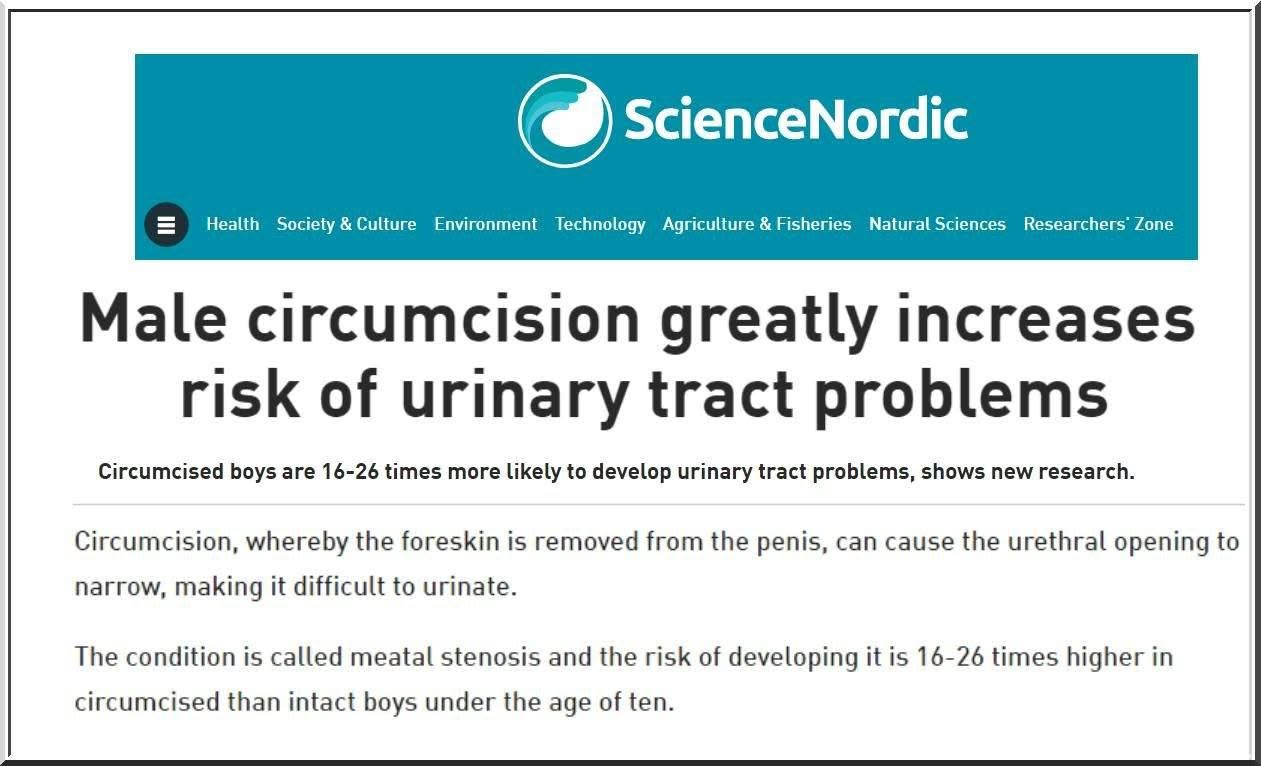
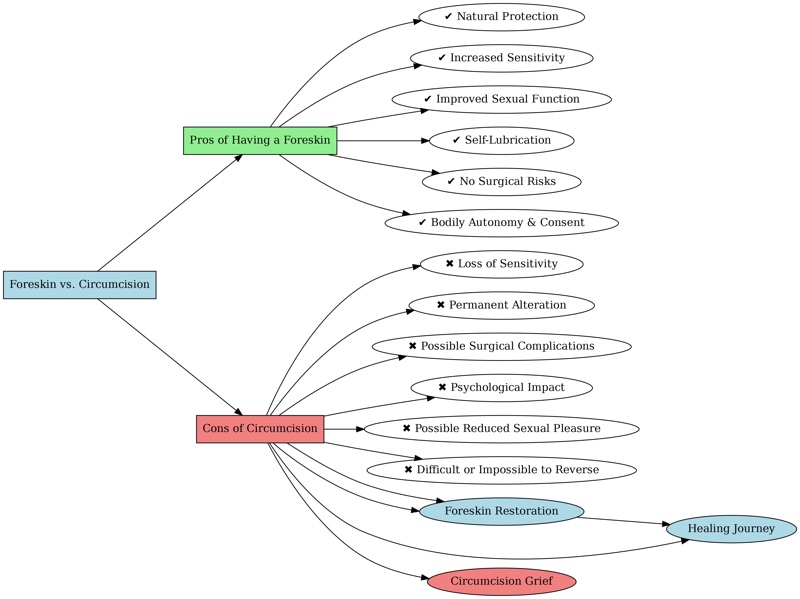
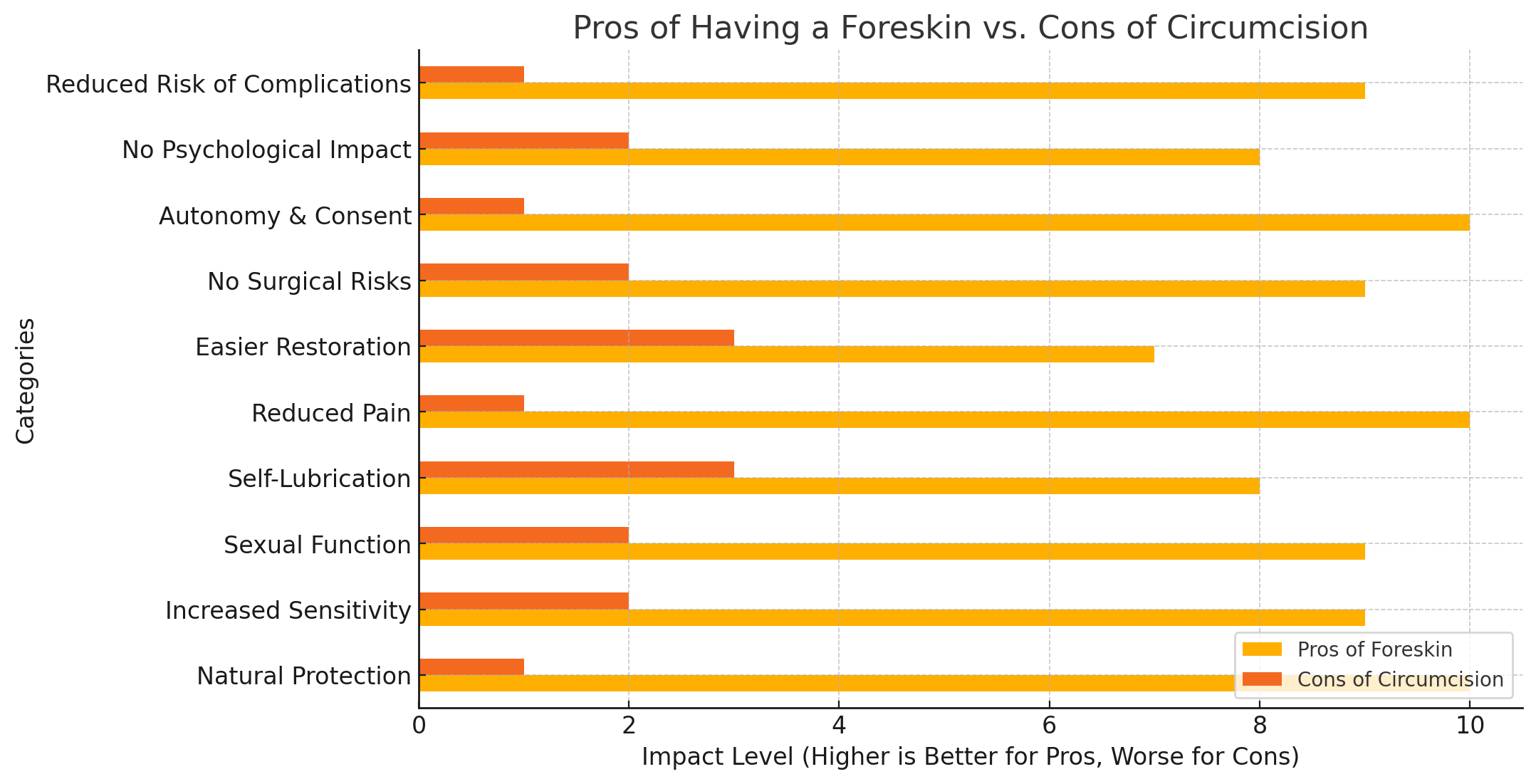
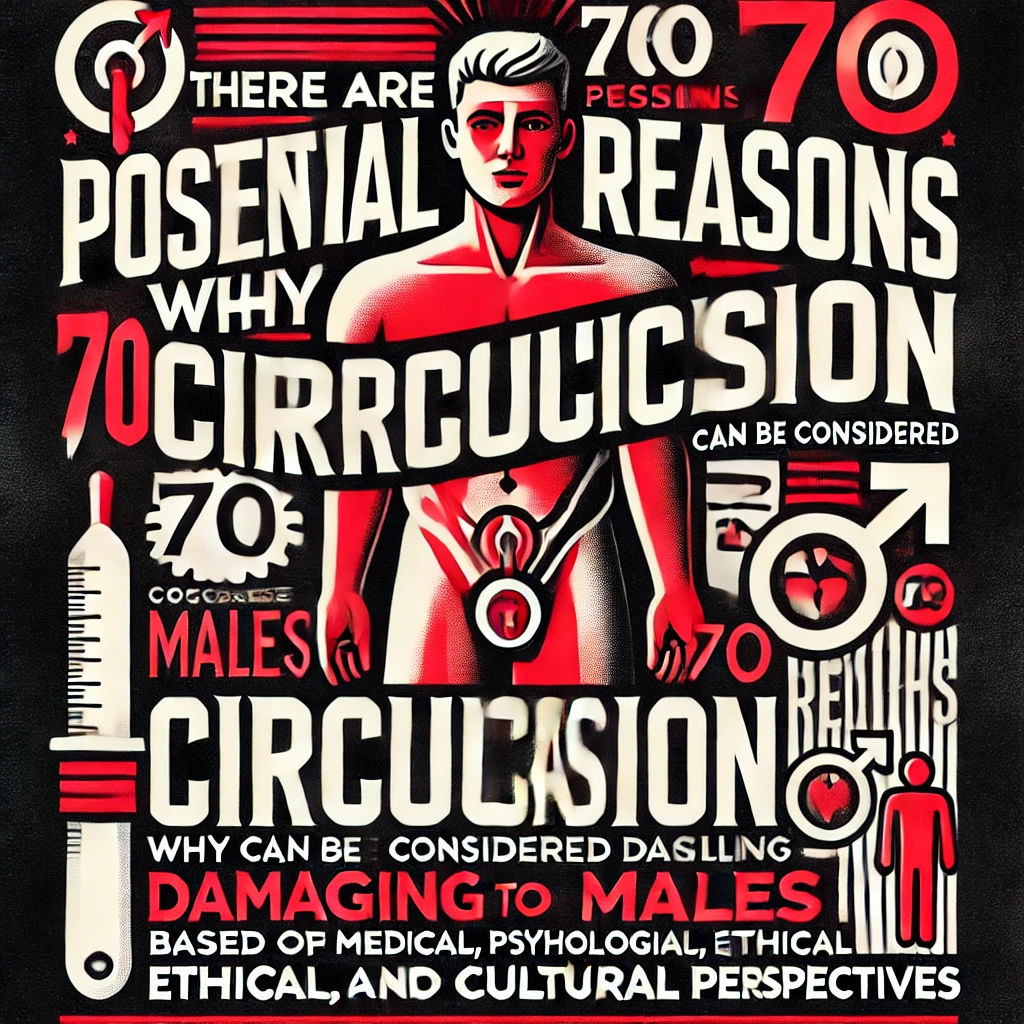
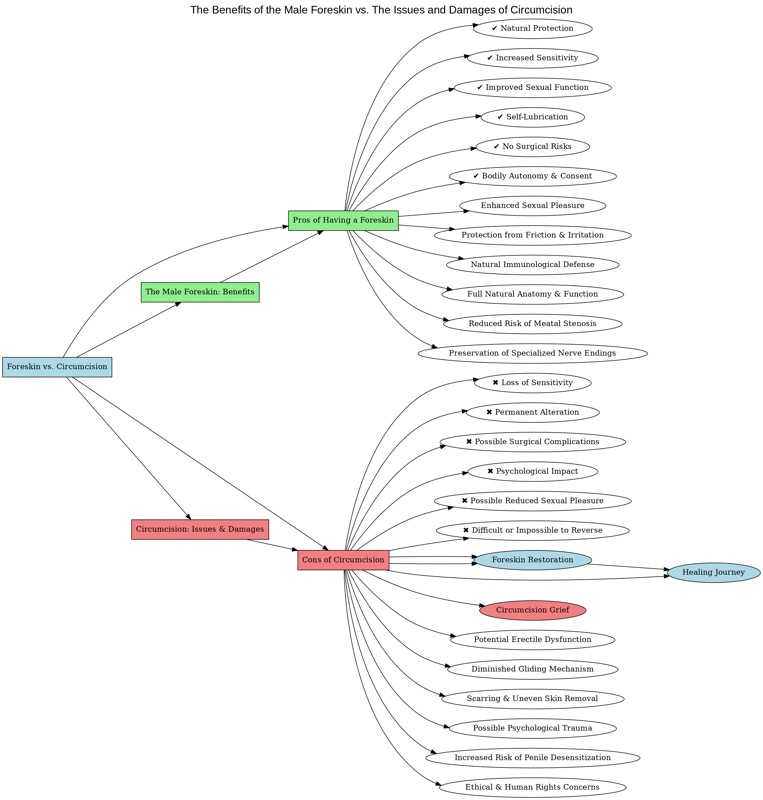



📢 Want to Know the Truth?
👉 Watch Now: The Truth About Circumcision
Eric Clopper’s explosive, eye-opening presentation exposes the hidden truths about circumcision, its impact on men’s health, and the medical industry’s role in promoting it. If you care about bodily autonomy and human rights, this is a must-watch.
🔗 Sex & Circumcision: An American Love Story – Eric Clopper
🔗 https://youtu.be/FCuy163srRc?si=-I0uSf9MEV06bvY9
Comments
Post a Comment